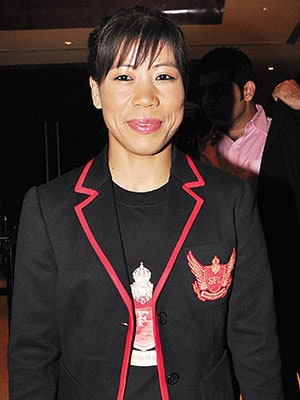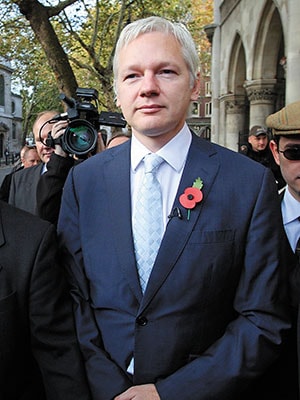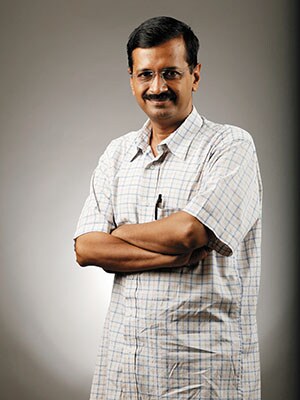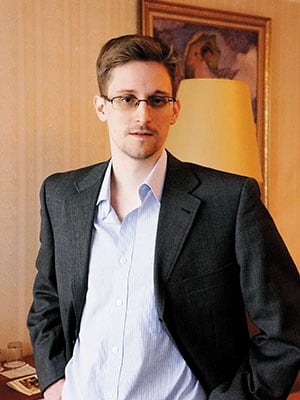5 People To Impact Our Thinking in the Last Five Years


The Unique Geek
Nandan Nilekani could have retired as chairperson of Infosys and devoted his ‘golden years’ to philanthropy and mentorship, like many of his peers in the corporate world. His legacy would have been a good one, if not very remarkable. Instead he chose to take on the role of the chairperson of the Unique Identification Authority of India, which had the Herculean task of providing a unique identification, or UID, to every one of the 1.2 billion residents of India, the largest scheme of its kind ever attempted. Conceived as a way to efficiently deliver welfare services to those who need them most, Nilekani has described it as the world’s largest anti-corruption programme. The UID has the potential to truly change India. Earlier this year, having delivered the 600 million registrations he had committed to in 2009, Nilekani began his political career for the Congress, declaring his candidacy for the Bangalore South parliamentary constituency. The Fighter
The Fighter
Mangte Chungneijang Mary Kom was a world champion before 2009 (she won her first title in 2002). But thanks to our national obsession with cricket, she, like so many other athletes in other sports, soldiered on unrecognised. As a Manipuri from humble beginnings, as a boxer, and as a woman, she was fighting more than the opponents she faced in the ring. She overcame the odds to be a five-time world champion. And she punched her way into our sight when the 2012 London Olympics were on the horizon, as one of the precious few with a credible chance of a gold medal. At the Games, she fought in a weight category several levels higher than her natural category (women’s boxing at the Olympics has fewer categories than the men’s), but still brought home a bronze medal. At 31, she does not have very many years in the sport left, but don’t count her out of another shot at Olympic glory. Plus there’s her boxing academy, which will ensure that the dimunitive champion will help train more like her, and the Priyanka Chopra-starring biopic which will come out later this year. Yes, we’ll see a lot more of our Mary.

The Secret crusader
Julian Assange and his wikileaks, with their trove of secret documents, showed the world things about the US government that it didn’t want us to know. Wikileaks made its first big splash with the release of footage from a helicopter strike that killed civilians in Baghdad, video that came to be known as ‘Collateral Murder.’ Later releases, some in tandem with media organisations, caused the US government even more embarrassment. While WikiLeaks continues to release documents (they claim to have millions), accusations of rape against Assange saw him seek asylum in the embassy of Ecuador in London, where he has been since June 2012. The Ordinary Man
The Ordinary Man
In 2009, Arvind Kejriwal was just a former civil servant, albeit one who had won the Magsaysay Award. He first leapt into the national consciousness as one of the supporters (and some say, the brains behind) activist Anna Hazare’s 2011 agitation for the creation of the Lokpal, a national ombudsman to deal with systemic corruption. After parting ways with Hazare, in 2012 he founded the Aam Aadmi Party which, a year later, came second in the Delhi Assembly elections and eventually, and briefly, formed the state government, with Kejriwal as chief minister. Shortly after, he resigned. And the party widened its ambitions, deciding to fight seats across the country in the national elections, with Kejriwal standing from Varanasi, one of the two seats that the BJP’s PM candidate, Narendra Modi, was contesting from. Whatever the results of the elections, Kejriwal has forever turned the political game around, providing an alternative to the monoliths of the Congress and the BJP.

The Whistleblower In 2013, Edward Snowden, a former employee of the cia and companies that did work for it, collaborated with several media organisations to reveal a number of surveillance programmes in various parts of the world. Snowden has been called a traitor by prominent American figures, but his reputation outside governmental circles is rather different: He is viewed as a hero by those who resent increasing covert surveillance of citizens by their own governments.
Snowden has shown that ordinary citizens with technical skills can, and do, fight back, and even win. And he has opened up the debate on privacy by the very simple mechanism of giving the world more information.
Images: Kom: Getty Images Assange: Peter Macdiarmid / Getty Images Kejriwal: Getty Images Snowden: Barton Gellman / Getty Images
First Published: May 22, 2014, 06:38
Subscribe Now